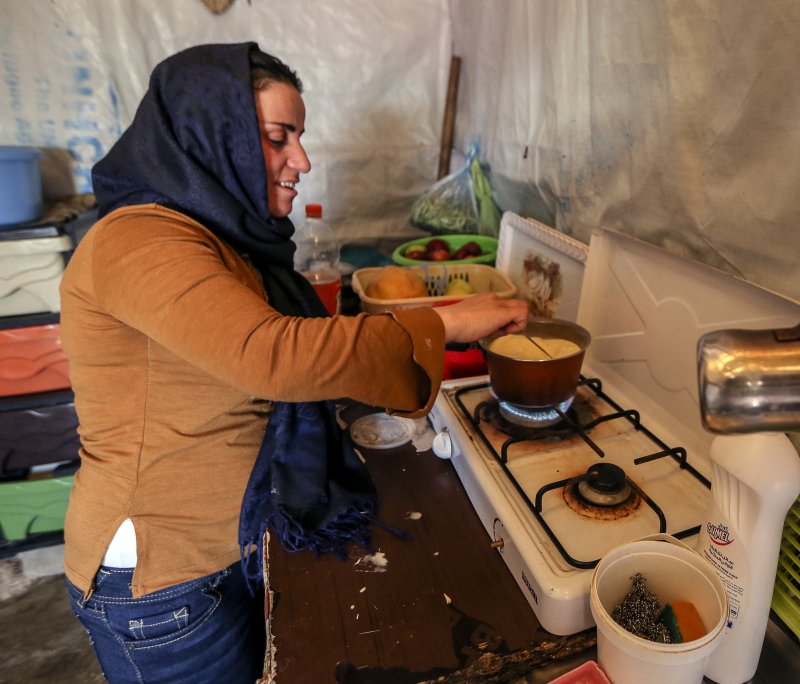Despite increasing security in Syria, U.N. officials say food aid must continue to the country after recent extreme weather caused a drop in wheat production. File Photo by Nabil Mounzer/EPA-EFE
Oct. 23 (UPI) -- Extreme weather conditions have caused wheat production in war-torn Syria to drop to a 29-year low, World Food Programme officials said Tuesday.
Spokesman Hervé Verhoosel told reporters during a briefing in Geneva that wheat production for the year was 1.2 million tons, about two-thirds of the amount produced in 2017. He said the food shortage was due to extended drought during the cropping season followed by heavy rain.
"Farmers had reported it as the worst agricultural season in living memory in al-Hasakeh, the north-eastern region that typically provides almost half the country's wheat," Verhoosel said.
He cited figures produced in a report by the WFP and Food and Agriculture Organization, both U.N. agencies.
Because of the drop in wheat production Syrians will have less to eat and will have to pay more for the wheat they are able to obtain.
U.N. officials said food aid must continue to Syria, which is embroiled in a seven-year civil war, despite increased security and a drop in the number of food insecure people there. About 44 percent of households have reduced the number of meals they eat each day and more than 35 percent restricted how much adults eat in favor of feeding children.
"Despite overall improvements in access for food, about one-quarter of the households continued to rely on poor-quality and -quantity diets," Verhoosel said.
About 963,600 internally displaced people returned to their homes in 2018, an increase of 58 percent over 2017. Another 23,400 refugees returned to Syria from other countries. Despite the returns, the United Nations said population displacement is the primary driver of food insecurity.
"There were still 13.1 million people in need of humanitarian assistance, 6.1 million of whom were food-insecure internally displaced persons. It was vital to maintain a lifeline of food assistance for vulnerable families in Syria, where unemployment was stood at 60 percent," Verhoosel said.
He said the WFP was shifting priorities from food distribution to longer-term strategies for returnees.















